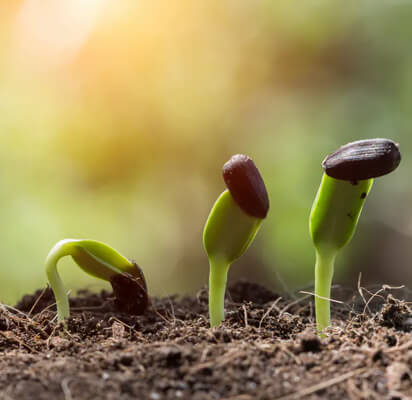Botany
Biology can broadly be pided into two major sciences, i.e. Botany (Plant science) and Zoology (Animal science). Botany covers all organisms that are autotrophs. Some branches like Mycology, Lichenology, Bacteriology, Virology etc. include organisms that are not autotrophic in nature yet covered under introductory botany courses.
As with other life forms in biology, plant life can also be studied from different perspectives, like molecular, genetic and biochemical level through organelles, cells, tissues, organs, inpiduals, plant populations, and communities of plants. At each of these levels, a botanist might be majorly concerned with the classification (Taxonomy), structure (Anatomy and Morphology), or function (Physiology) of plant life. Along with these, branches like Palaeobotany and Ecology bring us the knowledge of vegetation of past, present and future, Ethnobotany, Economic Botany, and Pharmacognosy enrich us with the knowledge of plants being used in past and present and evolution in the usage pattern of plant resources. Applied branches like Agronomy (Application of botany to increase crop production), Arboriculture (Culture and propagation of trees), Dendrology (study of woody plants), Floriculture (Culture of flower yielding plants and increasing vase life of flowers), Pharming (Genetic engineering of plants to produce pharmaceuticals), Plant Tissue Culture (Micropropagation), Pomology (Study of fruit yielding plants), Plant pathology (study of plant diseases and prevention methods), Pharmacognosy (Drug discovery from plants).
Plants are a fundamental part of life on the Earth, which generates the oxygen, food, fibres, fuel and medicine that allow humans and other life forms to exist. Hence, study of botany is vital to understand fundamental life processes, to ensure food security to feed an expanding population, check the effects of global warming and climate change, to maintain biogeochemical cycles, new drug discoveries etc. A good understanding of plants is crucial to the future of human societies.
Career in Botany
Botany brings a fantastic opportunity to make a career in scientific research worldwide. Researches related to nature conservation, climate change impacts assessment, new drug discovery and drug trials, crop improvement, produce stress-tolerant crop varieties through genetic engineering, improving forest cover, sustainable living etc. are never possible without help of botanists. There always been a great demand of botanists in the research branches like Molecular Biology, Genetics, Cytology and Taxonomy. One can start his/her career as JRF (Junior Research Fellow) and can become a Scientist in time.
In government sector, botanists can be absorbed as Junior Scientific Assistant, Scientific Officer, Project Officer, Research Assistant, Research Associate, Field Assistant, Field Officer and so on. Particularly in Forest Department, lucrative post of IFS (Class I) and ACF, RFO (Class II) are the best-known jobs for botanists.
Botany at President Science College
At the President Science College, we are committed to excellent results. Well qualified teaching staff of the college works dedicatedly to ensure bright future of the students. Classrooms are equipped with PowerPoint Projectors where theoretical lectures are taken with audio-visuals. The laboratory facility is also up to date with live and preserved materials, charts and models. Thorough guidance, revisions, separate sessions to solve difficulties, unit tests and personal attention to each student are our ways to bring the best out of our students.


